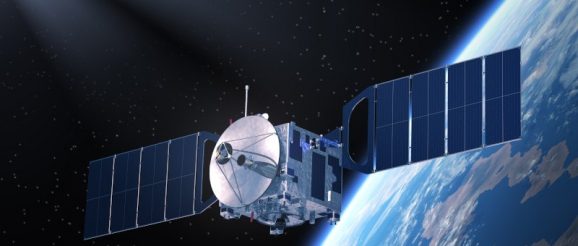With one small step, Ireland could take a giant leap for space innovation

Tomorrow (12 July), Ireland’s TDs are set to debate and vote on the ratification of the United Nations’ Outer Space Treaty.
Formally called the ‘Treaty on Principles Governing the Activities of States in the Exploration and Use of Outer Space, including the Moon and Other Celestial Bodies’, it addresses the peaceful use of outer space. Weapons of mass destruction are forbidden and countries are not permitted to claim any part of space or any celestial bodies, including the moon.
The treaty has been ratified by more than 100 countries. Although Ireland ratified the Outer Space Treaty in 1967, a recent interpretation of ratification requirements means it must be put to a vote by TDs. This is on the agenda for the Dáil now because space activity continues to grow globally and Ireland needs to ensure it is positioned as a responsible actor to benefit from this growth.
The global space market was valued at $337bn in 2021 and is expected to grow by 74pc by 2030 to reach $642bn, surpassing $1trn by 2040. Not only can satellites take breathtaking images of the cosmos and deliver probes to comets, they also provide essential services closer to home.
Satellite data plays an increasingly important role in marine, agriculture, forestry, environmental monitoring and crisis response. Modern weather forecasting, navigation systems and communications infrastructures all require the use of satellites. Space, therefore, delivers societal as well as economic and scientific benefits.
‘Space activities are no longer limited to just the known large space nations’
Ireland’s space activity is enabled primarily through its longstanding membership of both the European Space Agency (ESA) and the European Union, which funds Irish commercial and research activity ‘upstream’ (hardware and software for spacecraft, launchers and operations) and ‘downstream’ (applications of data from space in Earth observation, navigation and security).
The economic importance of space to Ireland has been recognised in the Irish National Strategy for Space Enterprise published in 2019. The vast majority of Ireland’s €24.8m annual contribution to ESA, goes to industrial contracts to Irish companies on a juste retour basis.
For example, the spectacular live video telemetry of the separation of the James Webb Space Telescope from the Ariane 5 rocket on Christmas Day 2021 was captured by a camera system developed by Dublin-based company Réaltra. AI-enabled processing in space was demonstrated by another Irish success story, Ubotica, and led to its recent €4m funding round.
According to a 2016 report by the Department of Jobs, Enterprise and Innovation on the economic and enterprise impacts from public investment in R&D in Ireland, the direct return on Ireland’s space investment was 3:1. When considering the additional economic activity reported by businesses as arising from their engagement in ESA contracts, the return on investment was 7:1. The economic impact of Ireland’s involvement with ESA, for the price of a coffee and bun per person per year, is therefore extremely positive.
Space activities are no longer limited to just the known large space nations. Scotland, for example, has grown its space industry to more than £3.5bn in only 10 years of focused investment and policy, and now has 170 organisations directly employing or funding skilled workers and innovators in the space sector. More spacecraft are now built in Scotland than anywhere else in Europe.
‘Tomorrow’s vote is about ensuring further benefit to Ireland from the new wave of space growth through our innovative industry and our creative researchers’
At home, Ireland’s first satellite, EIRSAT-1, is in the final phase of testing before launch. An ambitious scientific, education and space skills development programme, it is built by graduate students, postdoctoral researchers and staff from the UCD Centre for Space Research with support from the ESA education office’s Fly Your Satellite! programme.
EIRSAT-1 will gather data that Irish scientists and technology businesses will harvest to add value in the knowledge economy and in astrophysics, while delivering engineering and space systems capability.
Space demands significant scientific knowledge and technological know-how to support emerging business models and future jobs market demands. Every other member state of ESA, large and small, has put its own spacecraft into orbit. That means they have the heritage to foster economic growth and scientific discovery in space. EIRSAT-1 is part of a wider Irish space programme that will help Ireland catch up in this frontier.
Tomorrow’s vote is about ensuring further benefit to Ireland from the new wave of space growth through our innovative industry and our creative researchers, while preparing the ground for the next generation of scientists, engineers, artists, poets, innovators and entrepreneurs to dare mighty things.
Prof Lorraine Hanlon is full professor of astronomy at University College Dublin and director of the UCD Centre for Space Research.
10 things you need to know direct to your inbox every weekday. Sign up for the Daily Brief, Silicon Republic’s digest of essential sci-tech news.
The post With one small step, Ireland could take a giant leap for space innovation appeared first on Silicon Republic.
